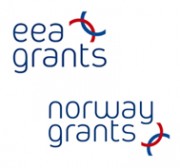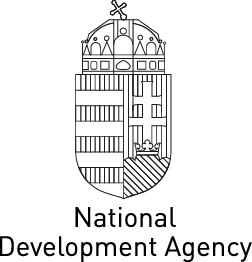Hungary Used the Sources of EEA/Norwegian Financial Mechanism Effectively17 June 2011
 The 2004–2009 Programme of the EEA/Norwegian Financial Mechanism has been concluded successfully.
The 2004–2009 Programme of the EEA/Norwegian Financial Mechanism has been concluded successfully.
The results of the supported projects all around the country show the successful cooperation of Hungary and the donor countries - Iceland, Lichtenstein and Norway - from protecting the European legacy through scientific research to human resource development. Besides the developers, representatives of the Ministry of Foreign Affairs of Norway, the Ambassador of Norway to Budapest, the Financial Mechanism Office of Brussels, the National Development Agency and the Hungarian institutional system responsible for management took part in the conference organized on the occasion of the closing of the programme.
The programme of the Financial Mechanism was incredibly popular among the tender opportunities in Hungary in its first round of tendering in 2006. This popularity and increased interest was typical throughout the whole period of tendering.
The participants of the conference agreed that the most important result of the success of the programme was the good cooperation between the donor and the beneficiary countries. They expressed their hope that the relationship that was built between Hungary and the donor countries would also serve as a basis for future cooperation.
According to the report given at the event, after the three rounds of tendering the donor countries supported 99 tenders using the available funds of EUR 135 million.
The presenters of the conference introduced the institutional system that helped to realize the programme. Its members are the following: the Financial Mechanism Office of Brussels that is responsible for program coordination between the donor and the beneficiary countries, the National Development Agency as the National Contact Point, the Hungarian State Treasury as the Paying Authority, and the Implementing Agency responsible for the implementation of the projects that is VÁTI Nonprofit Kft. Program implementation was finished on 30 April 2011, financial implementation is still in progress. The programme contributed to the improvement of bilateral relations, donor country partners were involved in one third of the projects.
The conference's welcome address was given by Siri Ellen Sletner, the Ambassador of Norway to Budapest, which was followed by the opening speech of Zoltán Petykó, President of the National Development Agency. Programme Director of the Financial Mechanism Office Kurt Haugen, Head of the Managing Authority for International Cooperation Programmes of the National Development Agency Balázs Simó, and Deputy Department Head of the Ministry of Foreign Affairs of Norway Vibeke Rysst-Jensen each held a presentation at the event.
At the workshops organized based on priority areas, developers discussed and shared the experience of project implementation.
At the overview of the future support scheme it was announced that among the beneficiary countries Hungary would receive somewhat more support, over EUR 150 million. At present bilateral discussions are in progress between Hungary and the donor countries.
The conference was closed by a short concert of the students of the European Special College for Roma Music Education featuring Ferenc Snétberger guitar artist, professor of the Special College. The Special College received support from the Financial Mechanism for the establishment of the Felsőörs music camp and the selection of gifted but disadvantaged Roma children.
Successes with the Support of the European Economic Area and Norway
Support schemes EEA/Norwegian Financial Mechanism were initiated by Norway, Iceland and Liechtenstein in May 2004 to help establishing social and economic cohesion in the enlarged European Economic Area. The Norwegian Financial Mechanism was open for the 10 new EU member states, while the EEA Financial Mechanism was open for the 10 new EU member states and Greece, Portugal and Spain.
The funds of EUR 135 million received by Hungary from Iceland, Lichtenstein and Norway through the EEA/Norwegian Financial Mechanism constituted over 10% of the sources of EUR 1.17 billion received by the beneficiary countries in total, and amounted to the second largest support sum.
Priority areas
Support was available for projects that were connected to the following priority areas. Each tender could only be connected to one priority area.
1. priority area: Environmental protection
2. priority area: Sustainable development
3. priority area: Preservation of the European heritage
4. priority area: Human resource development, education
5. priority area: Health care
6. priority area: Children and youth
7. priority area: Regional development and cross-border cooperation
8. priority area: Cooperation in internal affairs and judicial cooperation
9. priority area: Scientific research
Support ratio
The project support ratio of EEA/Norwegian Financial Mechanism can be 60%, 85% or even 90% depending on the organization eligible for grants, in line with the co-financing target values of the European Community. Tenderers must also comply with the rules concerning state aids.
Eligibles for grants
Any state, private or non-governmental organization founded or officially registered in Hungary that works for public interest (for example national, regional or local authorities, educational/research institutes, environment protection organizations, voluntary and community organizations, cooperations of voluntary and community organizations) was eligible for grants and to initiate projects.
Working for public interest was a top priority of the support decision of activities.
Tendering and implementation
Tenders could be submitted in three rounds between 2006 and 2008 for the call for tenders announced in the framework of the EEA/Norwegian Financial Mechanism. As a result of the three rounds of tendering, through the Norwegian NGO Fund and with the project for the use of the technical support, 99% of the sources were committed.
The most popular priority areas were the following: environmental protection, preservation of the European heritage, and human resource development.
As a summary it is safe to state that the support of the donor countries contributed to the development of social and economic cohesion.
The future of EEA/Norwegian Financial Mechanism
In the next period of EEA/Norwegian Financial Mechanism Hungary will receive a support of over EUR 150 million. The overall objective of the programmes is to promote economic and social cohesion and strengthen bilateral relationships between the donor and beneficiary countries.
Discussions have been underway between Hungary and the representatives of the donor countries since November 2010 about the conditions of use and target areas of grants. Success areas such as environmental protection, preservation of the European heritage, human resource development and scientific research are expected to receive further grants from EEA/Norwegian Financial Mechanism. First calls for tenders are expected to be announced in the second half of 2012.

